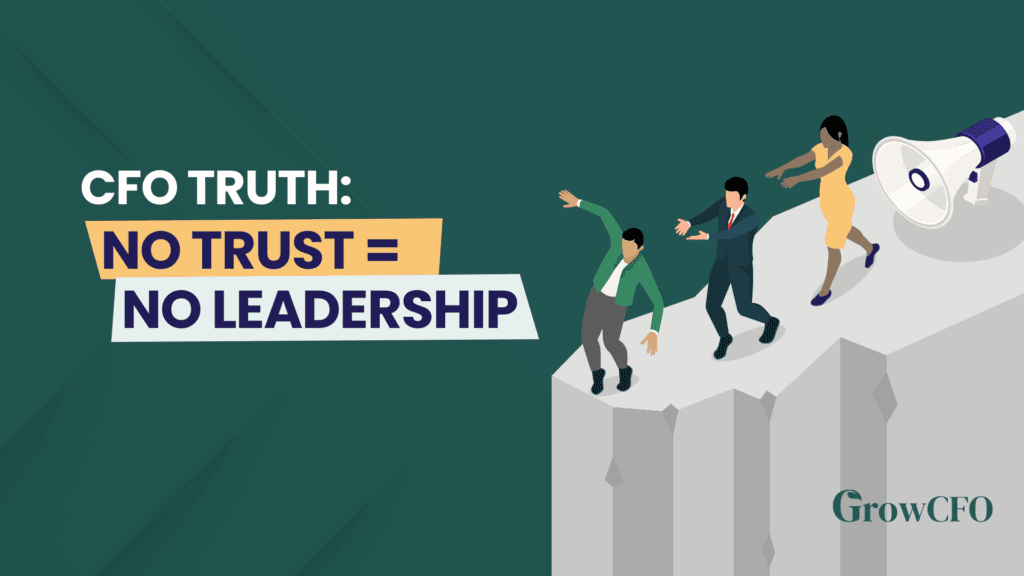CFO Truth: No Trust = No Leadership

Lose Trust, Lose Everything
For CFOs, trust isn’t just a virtue — it’s a career-defining asset. Without it, your numbers don’t matter. Your insights don’t land. Your leadership stalls.
It’s baked into every finance qualification. It underpins board-level influence. And it’s the first pillar in Lencioni’s high-performance team model for good reason: if your team doesn’t trust you — or each other — performance crumbles fast.
In this issue, we explore how finance leaders can actively build and protect trust — and what happens when they don’t.
Trust isn’t just internal — it’s everywhere you turn
CFOs don’t operate in a vacuum. To succeed, you need trusted relationships at every level — with your team, stakeholders, board, investors, and more.
Trust isn’t instant. It’s earned over time through consistency, clarity, and sound judgment. But once you have it, everything changes: people follow your lead, rally behind your goals, and go the extra mile to hit targets.
Whether you’re:
– Presenting to investors
– Navigating a regulator
– Leading a shareholder exit
– Or explaining a complex decision to a non-finance exec
That belief — that confidence — is built on trust. Without it, influence fades. With it, you lead with power.
Integrity is a non-negotiable for effective CFO leadership
Integrity is not just a personal value — it’s a professional obligation. It requires honesty, transparency, and the ability to deliver difficult messages at the right time.
You are trusted to challenge assumptions, raise concerns, and handle conflict or bad news in a constructive, measured way. Avoiding these responsibilities for the sake of short-term harmony can significantly undermine your credibility — and allow sub-optimal decisions to go unchallenged.
Trust and integrity are inseparable. Without them, leadership breaks down.
A practical indicator of trust within your relationships is your ability to hold direct conversations about what is and isn’t working. If this feels uncomfortable, it’s often a sign that trust is either weak or underdeveloped.
These conversations may be difficult, but they are essential to strengthening alignment, increasing effectiveness, and reinforcing your position as a credible, strategic leader.
Trust isn’t built on words alone — it’s reinforced in every interaction
To lead with trust, three components must align: clarity, integrity, and presence. One of the most overlooked is how you show up in the room.
Your tone, energy, and verbal presence directly influence psychological safety. When people feel at ease, they speak openly. They share ideas, concerns, and insights that drive better decisions. Without that foundation, trust falters — and so does performance.
Want to master the skills that shape trusted, high-impact CFOs?
Join the Future CFO Program Preview Event to explore what it really takes to lead with confidence and influence at the highest level.
Spots are limited — register here.





Responses